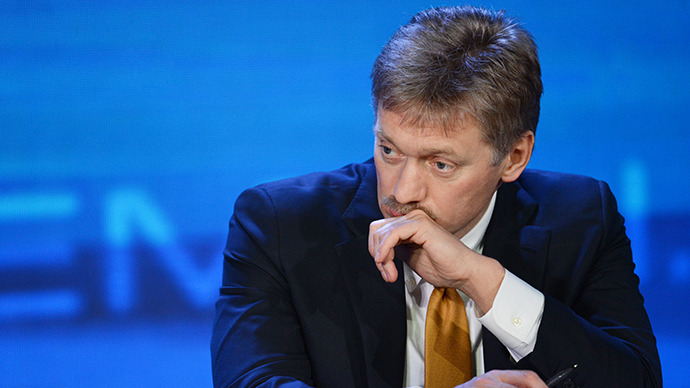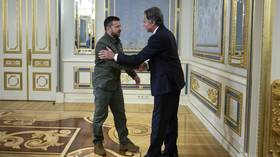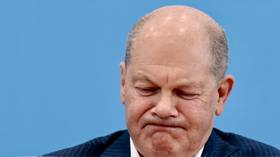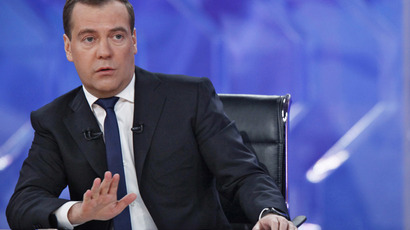Magnitsky case ‘strictly internal Russian affair’ – Putin spokesperson

Presidential spokesperson Dmitry Peskov has called the US ‘Magnitsky List’ a direct intervention in Russia’s internal affairs, and added that the case should not be discussed outside Russia.
Speaking on a Sunday night talk show on Russia 1 TV station, Peskov called the Magnitsky Act a “blow to Russia-US relations as a whole.” He said that the legislation was particularly ill-timed, as cooperation between the two countries is needed to counter a growing number of current and future regional conflicts.
“One cannot interfere into another nation’s affairs only halfway, just as one cannot be a little bit pregnant, we cannot talk about softer or harsher position in this particular case,” Peskov said, after the host asked whether US President Barack Obama had softened the blacklist before making it public.
Peskov went on to say that the Kremlin would have preferred that the Magnitsky List was never created in the first place. “The so-called Magnitsky case must not be discussed anywhere outside Russia, this is inadmissible for us and we would never agree to it,” he said.
He also said that no one in the Kremlin doubted the competence of the investigators who led the probe into lawyer Sergey Magnitsky’s death.
The US Treasury Department on Friday published a list of 18 Russian citizens – mostly police and judicial officials – who were subject to sanctions under the so called Magnitsky Act and therefore allegedly complicit in Human Rights violations.
On Saturday, Russia retaliated with a list of 18 US citizens allegedly involved in human rights violations in the US and abroad, and in illegal actions against Russian citizens in the United States. Under Russia’s ‘Dima Yakovlev Law,’ which was passed in response to the Magnitsky Act, certain US officials are banned from entering Russia, and any Russian assets they own will be frozen.
The US State Department expressed displeasure at this “eye for an eye” approach, and called on Russia to further investigate Magnitsky’s death.
After the Russian blacklist was made public, the Russian Foreign Ministry said that the Magnitsky Act and its blacklist had seriously damaged bilateral relations, and tarnished the ‘reset’ – measures aimed at improving Russian-US ties that began under Obama’s first term as president.
Russian officials – including President Vladimir Putin and Prime Minister Dmitry Medvedev – have repeatedly blasted the Magnitsky Act as a blatant attempt to pressure influence Russia’s internal affairs. They also pointed to flaws in the way the case was presented by the media, noting that Sergey Magnitsky’s former boss, William Browder, who initially launched the media and PR campaign around his accountant’s death, is himself a suspect in the same tax evasion case.
The ‘war of lists’ took place right before an official visit to Moscow by US national security advisor Thomas Donilon, in a bid to mend the deteriorating bilateral ties and continue talks on the US global missile defense initiative. On Monday morning, Donilon held talks with Russian Foreign Minister Sergey Lavrov, who said that Donilon fully understood the negative impact of the Magnitsky List and vowed to work to repair the strained relations. However, actions speak louder than words, Lavrov added.
Later in the day, Putin aide Yuri Ushakov told the press that Donilon delivered a personal message from Obama to Putin when the Russian president briefly met the US security advisor in the Kremlin.
The Russian presidential aide also announced that the message to
Putin was written “in a very constructive tone,” but
expressed surprise that the document arrived at the same time as
the release of “another paper with 18 names on It,”
referring to the Magnitsky List. Ushakov said that the Kremlin
understood that Obama seeks to strengthen bilateral relations, but
he was not doing enough to “fight for bilateral cooperation
inside the United States and to cut short some of the russophobes
who want to put a spanner in the works of cooperation.”














